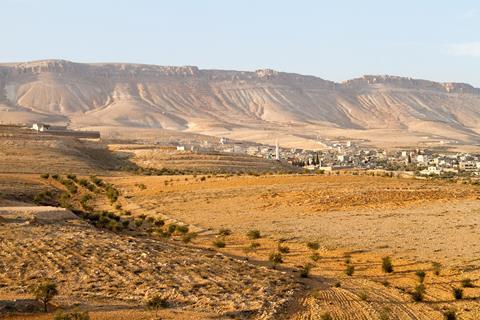The removal of sanctions on Syria may help the country respond to severe drought conditions, including by modernising irrigation systems and boosting productivity

The lifting of sanctions on Syria by the US and EU is expected to help the country counter the impact of severe drought conditions, such as through modernised irrigation systems.
The UN’s Food and Agriculture Organisation has warned that this year’s drought could lead to the failure of three-quarters of local wheat crops, threatening the food security of millions in Syria.
“We are anticipating a food shortage of 2.7m tonnes of wheat for this year,” said Toni Ettel, FAO’s representative in Syria, in part due to a suspension of wheat imports from Russia since the toppling of Syrian leader and Russian ally Bashar al-Assad.
“Agriculture in Aleppo’s northern countryside has been hit because of the lack of irrigation,” he told Reuters. “There is no rainfall.”
The agriculture ministry said it was taking measures, including limiting the cultivation of crops that require too much water.
Ettel said the removal of sanctions could help by allowing fertilisers and irrigation technology to be imported.
“This is indeed helping the agricultural sector for an improved production through the access to technology that can help with better and efficient use of water resources,” he said.
“Lifting sanctions does not solve the drought crisis in itself, but it provides the means and capabilities that enable the government and farmers to respond efficiently to it, via modernising irrigation systems, improving productivity and strengthening food security,” the ministry told Reuters.



